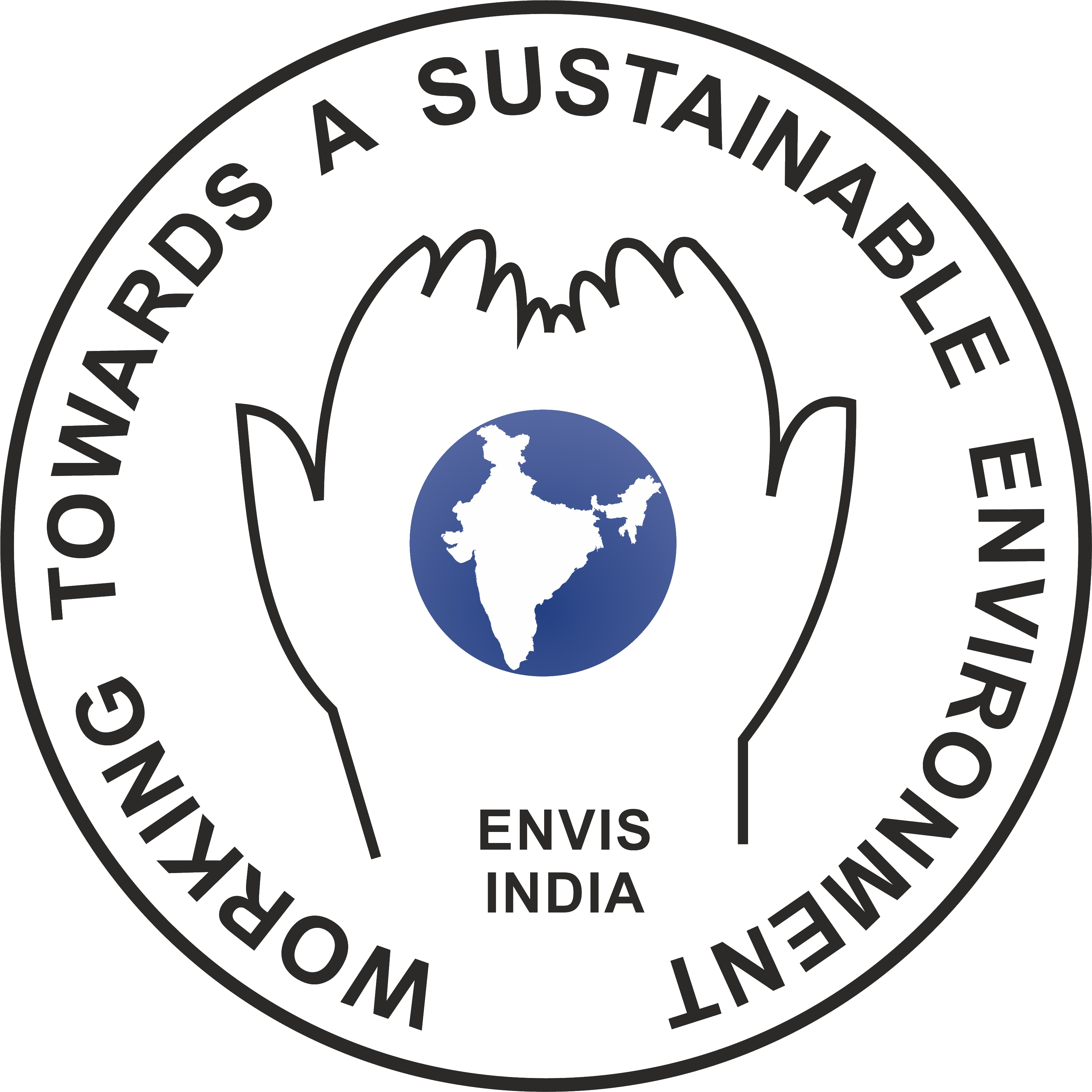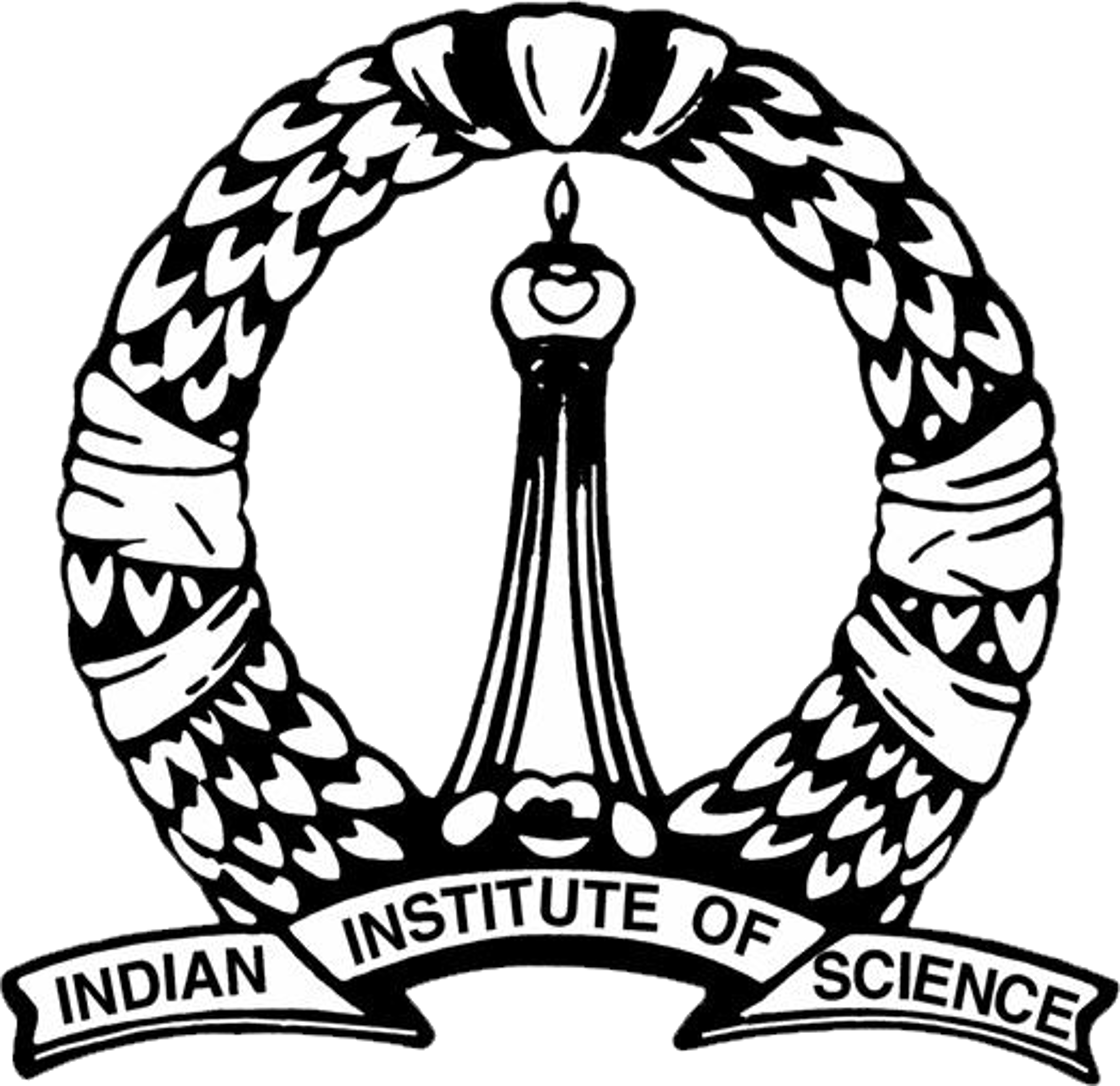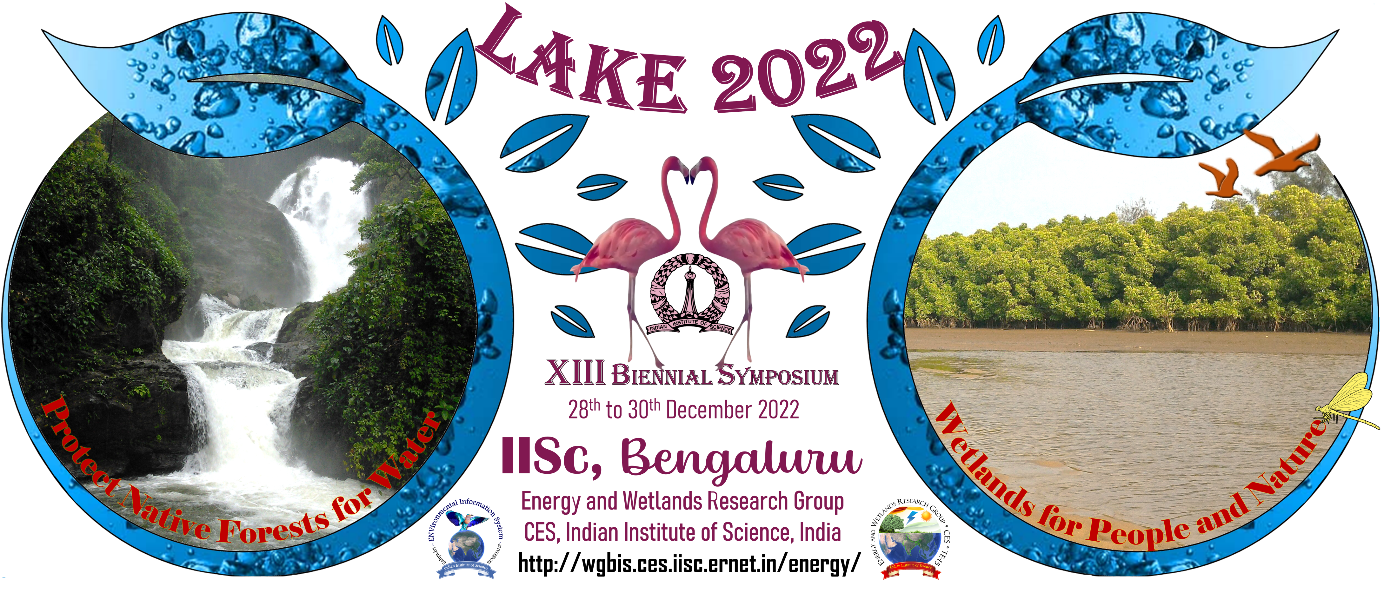LAKE 2022: CONSERVATION OF WETLANDS: ECOSYSTEM-BASED ADAPTATION OF CLIMATE CHANGE
[THE 13TH BIENNIAL LAKE SYMPOSIUM]





LAKE 2022: CONSERVATION OF WETLANDS: ECOSYSTEM-BASED ADAPTATION OF CLIMATE CHANGE
[THE 13TH BIENNIAL LAKE SYMPOSIUM]





Energy & Wetlands Research Group, CES, Indian Institute of Science, Bengaluru
The Energy and Wetlands Research Group at the Centre for Ecological Sciences (CES), is actively involved in studies and training on issues related to the environment, water resources, energy, ecology, wetlands, geographic information systems, environmental impact assessment and natural resource management. The Centre for Ecological Sciences, founded in 1983 with the support of the Ministry of Environment, Forests and Climate Change (MoEFCC), offers exciting research opportunities in various areas in ecology. Over the past 40 years, CES have instilled a tradition of rigorous enquiry in diverse areas of ecology, evolution and behavior. The projects of CES are often integrative which uses multiple approaches, from theoretical and laboratory studies to field-based research, to explore the research questions. A number of CES research areas are breaking new ground in ecology while others have significant roles in conservation. Details at http://wgbis.ces.iisc.ernet.in/energy
https://www.researchgate.net/profile/T_V_Ramachandra/publications
https://scholar.google.co.in/citations?user=Woh1fa8AAAAJ&hl=en
Indian Institute of Science (http:/iisc.ac.in )
The Indian Institute of Science (IISc) was founded in 1909 as a result of the joint efforts of Jamsetji Nusserwanji Tata, the Government of India, and the Maharaja of Mysore. In 1886, Jamsetji Tata conceived of a university of science that will work for the benefit of India, and in 1898 created an endowment for establishing such an institution. Over the last 112 years, IISc has become India’s premier institute for advanced scientific and technological research and education. Its mandate is “to provide for advanced instruction and to conduct original investigations in all branches of knowledge as are likely to promote the material and industrial welfare of India.” In keeping with this guiding principle, the Institute has strived to foster a balance between the pursuit of basic knowledge and applying its research for industrial and social benefit. IISc’s research output is diverse, interdisciplinary and cuts across traditional boundaries. The Institute has over 42 academic departments and centres that come under six divisions. It also places equal emphasis on student learning, with about 4000 students pursuing several postgraduate and PhD programmes, as well as a dedicated four-year undergraduate programme aimed at providing research-oriented training for young students in the basic sciences.
Centre for Environment Education (CEE), Bangalore
Centre for Environment Education (CEE) Ahmedabad was established as a Centre of Excellence under the Ministry of Environment, Forest and Climate Change, Govt. of India, working in the field of Environmental Education and Education for Sustainable Development. CEE develops innovative programmes and educational material and builds capacity in the field of Education for Sustainable Development (ESD). It is committed to ensure that Environmental Education (EE) leads to action for sustainable development. It undertakes field projects that demonstrate and validate the role education can play in sustainable development. CEE South is the southern regional office of the centre looking after the projects in the states of Karnataka, Tamil Nadu, Telangana, Andhra Pradesh, Kerala and UTs of Andaman & Nicobar, Puducherry and Lakshadweep Islands on implementation of the awareness and action programmes related to environment and development issues through innovative methodologies and approaches. Email: ceesouth@ceeindia.org
Students, Teachers Corner
Orientation Programs
Videos at YouTube
Ecosystem Monitoring - Design of Experiments Birds Butterfly Insects Macrophytes Algae Water Fish Plants Biodiversity